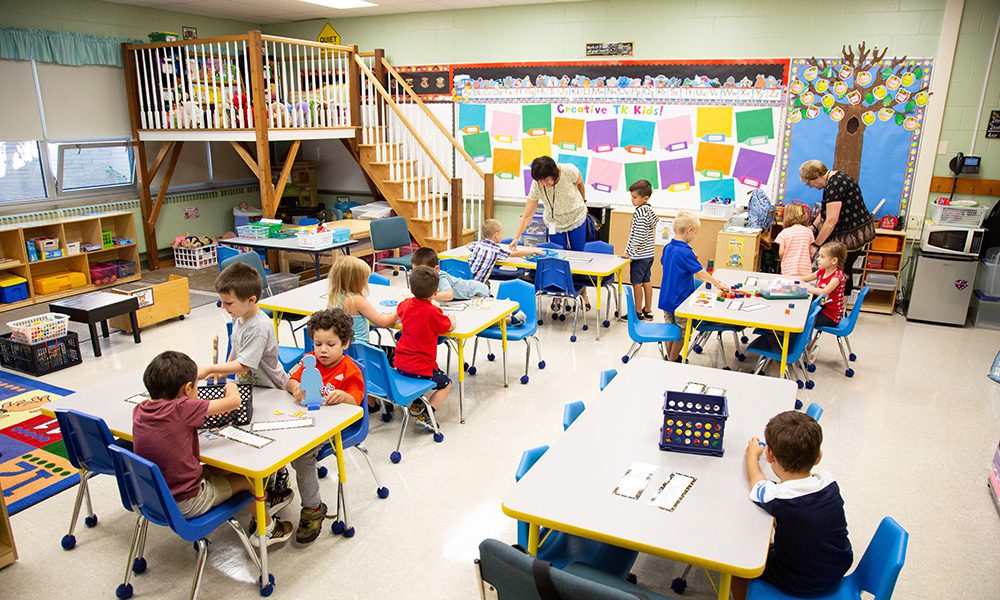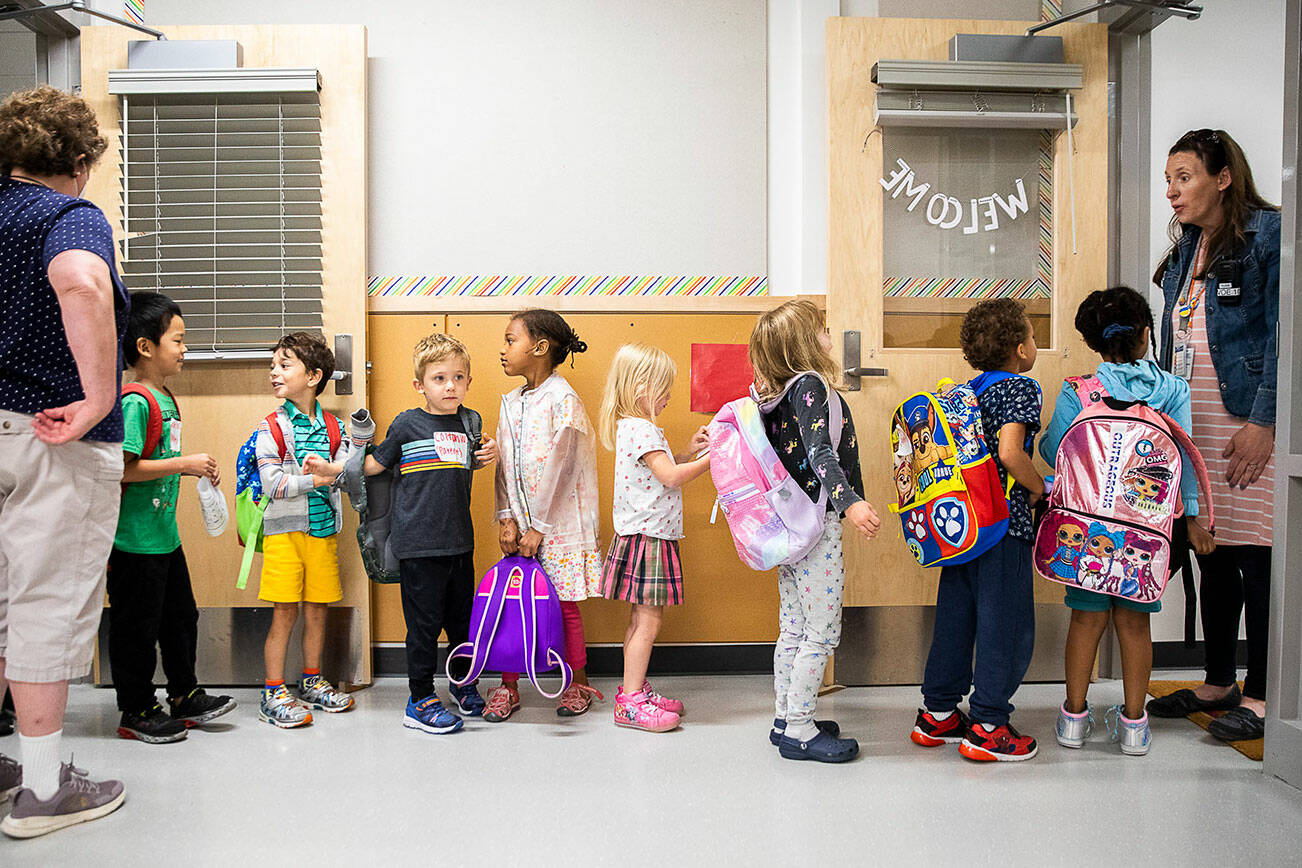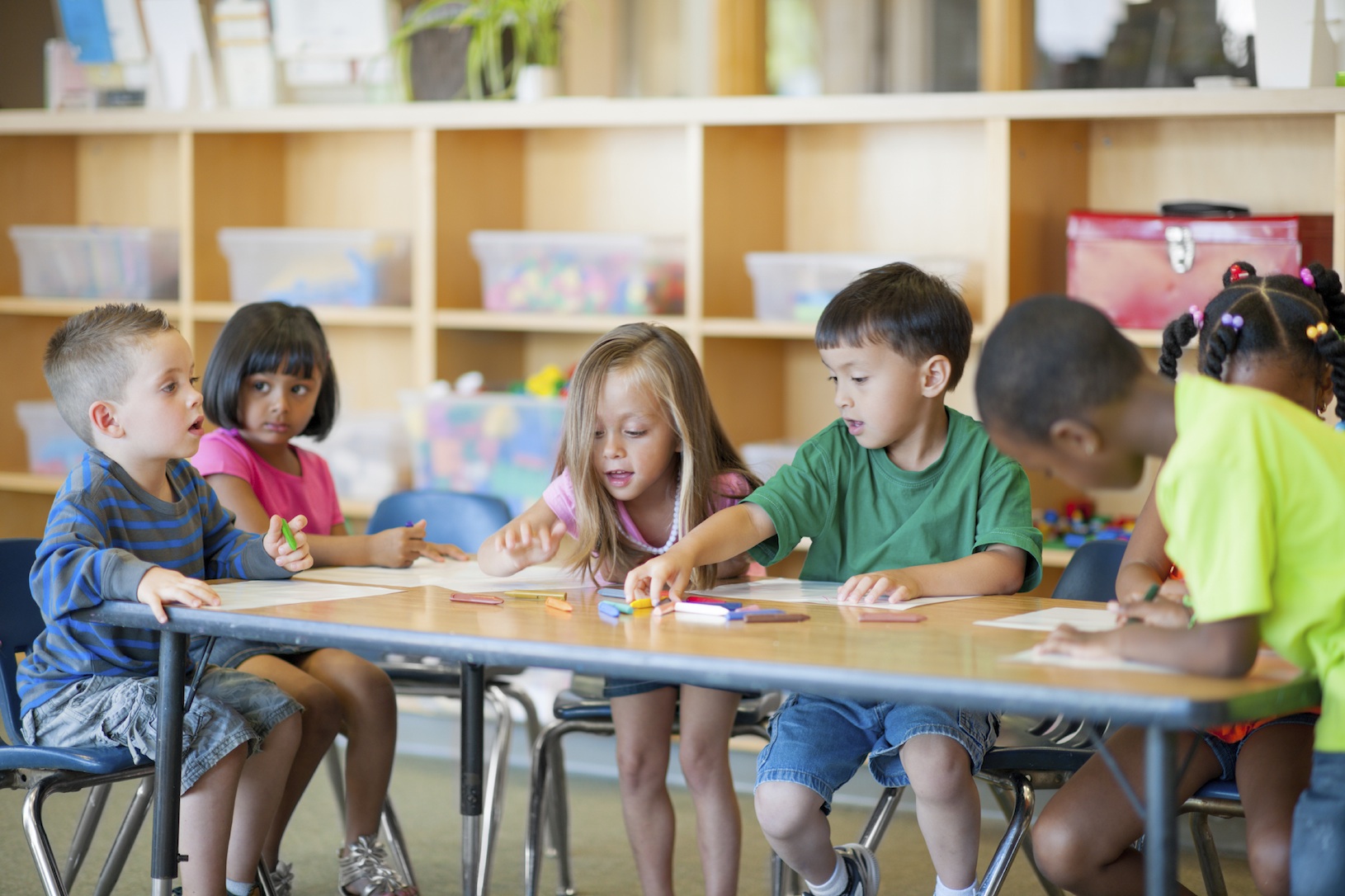How Grade School students benefit from science discovery projects
Wiki Article
The Significance of Interactive Tasks in Grade College Education
Interactive tasks play an important function in quality institution education and learning. They engage students and boost discovering end results. Via group projects and hands-on experiments, students experience the material in a functional way. This strategy satisfies varied discovering designs and advertises crucial abilities. The benefits prolong past academics. Discovering the much deeper effect of these activities discloses their value fit young students' futures. What transformations occur when pupils proactively participate?Enhancing Involvement With Interactive Discovering
Although conventional training techniques have their advantages, interactive understanding considerably boosts pupil engagement in elementary school education and learning. This method motivates energetic involvement, allowing students to immerse themselves in the discovering process. By utilizing group tasks, hands-on experiments, and technology-driven resources, teachers produce an environment where trainees feel more linked to the material.Interactive discovering promotes partnership among peers, cultivating interaction skills and team effort. It likewise accommodates diverse understanding styles, ensuring that aesthetic, auditory, and kinesthetic students can all flourish. Additionally, students are more probable to retain info when they proactively participate, rather than passively receiving knowledge.
This dynamic method not just makes finding out satisfying however additionally instills a sense of possession in trainees regarding their academic trip. As they involve with the content, their interest and motivation to find out rise, laying a solid foundation for future academic success.
Developing Crucial Assuming Abilities
Interactive knowing not only improves interaction but likewise works as a catalyst for establishing crucial thinking skills in elementary school pupils. With tasks such as problem-based learning, debates, and hands-on experiments, students are motivated to evaluate details, evaluate various viewpoints, and formulate reasoned final thoughts. These interactive experiences require pupils to wonder about presumptions, leading them to believe even more deeply regarding different subjects.
In addition, interactive tasks typically existing real-world situations that challenge students to use their knowledge artistically. By navigating through these challenges, they discover to recognize appropriate information and make educated choices. This procedure promotes not just specific essential thinking however likewise encourages pupils to verbalize their thought procedures, enhancing their capability to interact successfully. As an outcome, interactive knowing environments cultivate a generation of critical thinkers that are better prepared to take on intricate troubles in their future scholastic and specialist undertakings.
Promoting Collaboration Amongst Peers
Promoting cooperation among peers is necessary in grade school education, as it enhances teamwork and interaction abilities. Participating in group tasks helps pupils construct depend on and respect for one an additional, laying the foundation for reliable partnership. Furthermore, analytical together allows pupils to gain from each other and create a collective technique to obstacles.Team Effort and Communication Skills
Effective team effort and interaction abilities are crucial elements of an effective elementary school education and learning. Participating in interactive tasks urges pupils to work together, share concepts, and address issues with each other. Such experiences promote the advancement of essential communication capabilities, permitting children to express their thoughts clearly and pay attention proactively to others. Through team effort, pupils find out to value varied perspectives, promoting a sense of area and shared responsibility. Structured group jobs, whether in academics or creative projects, enhance peer interactions, instructing kids how to work out functions and solve problems. As a result, these skills not just add to a positive class environment however additionally prepare students for future joint ventures in greater education and learning and the office. Overall, teamwork and communication are foundational to holistic advancement in grade school.Building Count On and Regard
Building trust and respect amongst peers acts as a foundation for successful cooperation in elementary school atmospheres. They are a lot more likely to engage proactively in team tasks when pupils really feel valued and valued by their classmates. Interactive tasks, such as group tasks and cooperative video games, provide chances for trainees to find out from one another, cultivating a feeling of community. This atmosphere motivates open interaction, allowing students to share their concepts and opinions without fear of judgment. As count on builds, pupils become a lot more ready to share duties and sustain each other's understanding. Eventually, cultivating an ambience of count on and regard enhances not just scholastic outcomes however also social development, gearing why not find out more up pupils with important social skills for their future undertakings.Problem-Solving Together
Collaborative analytical engages pupils in critical reasoning and team effort, crucial skills for their personal and scholastic development. When trainees interact to take on challenges, they find out to connect effectively, regard diverse perspectives, and leverage each various other's staminas. This procedure enhances their capacity to examine troubles from numerous angles and develop innovative solutions. Team activities, such as science experiments or mathematics challenges, promote energetic involvement and cultivate a feeling of community. As students collaborate, they likewise develop social skills, discovering to endanger and bargain, which are essential for future interactions. Inevitably, analytic with each other cultivates a helpful understanding setting, equipping pupils to take ownership of their education while preparing them for joint undertakings past the class.Urging Creative Thinking and Technology
Motivating creative thinking and advancement in grade school education can be substantially boosted with hands-on learning experiences. These activities enable students to engage straight with products and principles, promoting imaginative thinking. Furthermore, collaborative team jobs can promote diverse ideas and services, even more supporting an imaginative setting.Hands-On Discovering Experiences
A plethora of hands-on knowing experiences significantly enhances creativity and technology in quality institution education and learning. Engaging pupils in useful activities permits them to use theoretical expertise in real-world contexts, cultivating much deeper understanding. By manipulating devices and materials, children establish crucial problem-solving skills and discover to assume outside the box. These experiences inspire curiosity and inspire pupils to explore their rate of interests even more. Additionally, hands-on activities can connect numerous topics, linking science, art, and mathematics in significant ways. This interdisciplinary strategy encourages trainees to see links and believe artistically. Ultimately, hands-on learning experiences support a generation of innovators, furnishing them with the abilities and self-confidence needed to take on future obstacles and add to society in distinct methods.Collaborative Group Projects
Hands-on learning experiences normally result in the unification of collaborative group jobs, which play an essential role in fostering imagination and development in grade college education. These projects encourage students to interact, sharing perspectives and ideas, which improves analytic abilities and essential reasoning. Through collaboration, students find out to connect efficiently and respect diverse point of views, crucial skills for their future. In addition, team tasks give possibilities look here for trainees to explore various functions, boosting their adaptability and confidence. Taking part in this cooperative atmosphere enables them to discover their creative thinking, pushing the borders of traditional knowing. Ultimately, joint team tasks not only enrich the instructional experience yet likewise prepare students for real-world difficulties that require teamwork and cutting-edge thinking.Building Self-confidence and Freedom
As trainees participate in interactive tasks, they typically find possibilities to construct confidence and independence. These activities, whether they entail hands-on tasks, role-playing, or analytic tasks, urge students to take effort and reveal their ideas freely. By joining such experiences, pupils learn to trust their capabilities and choose without relying solely on advice from instructors or peers.Interactive tasks promote a sense of ownership over learning. When trainees take on challenges collaboratively or independently, they create critical thinking abilities and strength. This process not just boosts their understanding of the subject but likewise equips them to take dangers in their learning journey.
As they browse different interactive situations, pupils gradually dropped their self-doubt, leading the way for increased self-confidence - Private School. Ultimately, these activities play an important function in supporting independent and positive students, equipped to face future academic and individual obstacles
Creating a Positive Classroom Environment
While cultivating a favorable classroom atmosphere is necessary for reliable understanding, it requires intentional effort from teachers to develop a room where students really feel risk-free, respected, and engaged. A positive atmosphere encourages partnership, permitting pupils to reveal themselves without concern of judgment.Educators can accomplish this by developing clear expectations, promoting mutual regard, and recognizing specific contributions. Integrating interactive tasks even more improves engagement, making learning extra dynamic and delightful.
In addition, a caring atmosphere supports social-emotional advancement, as trainees discover to browse partnerships and solve conflicts. Teachers play a vital function in modeling positive actions and enhancing a culture of kindness and inclusivity.
Regularly Asked Questions

How Can Parents Support Interactive Understanding in your home?
Parents can sustain interactive knowing in your home by offering interesting products, motivating hands-on tasks, incorporating instructional games, promoting discussions, and developing a nurturing atmosphere that advertises inquisitiveness and expedition in their children's finding out experiences. (Grade School)What Sorts Of Interactive Tasks Are Most Effective?
Hands-on tasks, joint video games, role-playing scenarios, and academic modern technology applications are among one of the most efficient interactive tasks. These engage students, boost important assuming skills, and promote team effort, eventually promoting a much deeper understanding of different subjects.Exactly How Do Interactive Tasks Cater to Different Understanding Styles?
Interactive activities involve aesthetic, auditory, and kinesthetic learners by including diverse techniques. These tasks facilitate recognizing through hands-on experiences, collective conversations, and aesthetic help, enabling pupils to take in details according to their preferred knowing style.What Are the Prices Associated With Implementing Interactive Activities?

Applying interactive activities incurs expenses such as products, training for educators, innovation upgrades, and potential facility adjustments. Budget plan restraints can additionally impact the regularity and range of activities supplied to pupils in academic setups.
How Can Teachers Evaluate the Influence of Interactive Knowing?
Educators can examine the influence of interactive understanding through monitorings, trainee comments, performance metrics, and comparative evaluation of examination ratings prior to and after execution, ensuring a thorough understanding of engagement and understanding retention improvements.Via tasks such as problem-based learning, discussions, and hands-on experiments, trainees are motivated to assess information, review various perspectives, and formulate reasoned verdicts. Interactive tasks often existing real-world circumstances that challenge students to use their understanding creatively. Engaging in interactive activities urges students to work together, share ideas, and resolve issues address with each other. Interactive tasks, such as group projects and cooperative video games, give chances for students to learn from one an additional, cultivating a feeling of neighborhood. As students involve in interactive activities, they often uncover opportunities to construct self-confidence and self-reliance.
Report this wiki page